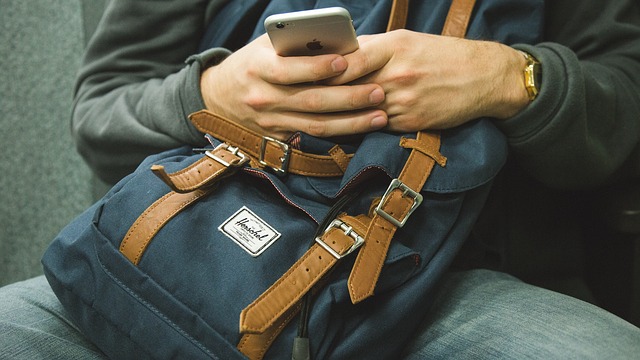Where to Begin with Your Gap Year Preparation
With A level results imminent this is a nervous time of year for many, but the official end of secondary school marks the beginning of a new chapter in life. Some will be preparing for their first term at university, but an increasing amount of school leavers are planning gap years to make the most of their time before they settle back into study or start work. Whether you’ve only just made the decision that you want to spend a bit of time travelling, or have been planning for a while and want to finalise a few details, here are some pointers you need to consider, for both those doing the travelling and the parents who get left behind with all the worry…

Shop Around for the Best Flight Package
If might be tempting to go with a specialist travel agency when booking your plane tickets, but a do-it-yourself approach might not be as complicated as you think, and there’s the added advantage that it could save you a bit of money before you even set foot on overseas soil. For starters, booking direct online with airlines means you’re not paying for any hidden commission or fees and online offers can also reward you with additional savings. For example, Official Air New Zealand voucher codes currently give you an extra £30 off London to Auckland flights, and with many major airlines you can now organise all your round-the-world flights in one place. The key is to shop around – use as many price comparison sites as possible, but remember to check the direct airline prices too as these might not be mentioned on the main travel search engines.
Set a Realistic Budget
There a couple of common traps many prospective gap year travellers fall into. They either don’t set a budget at all and rely on their wits, or set an unrealistically low daily budget and end up running out of money. It’s best to be honest about your spending upfront and to do this requires some boring old research about local costs before you go. However, once you work out how much you’re going to need then you know how much you have to save beforehand.
Organise Your Currency
Once you have that money in your savings account, you need to work out how you’re going to take it with you. It’s best to spread your options, but your first port of call should be your bank. Standard current accounts and debit cards usually have fairly steep charges for overseas withdrawals, but some banks offer special packages to cover this. Travellers cheques and currency exchange cards are another option you need to consider. It’s worth taking at least a small amount of the latter for emergencies, but a currency exchange card is basically a more up-to-date form of traveller cheque, allowing you to top up the car before you go. When exchanging your pounds for foreign currencies, always get the best exchange rate online before you go – airports desks will give you the worst deal by far.

Have a Plan B
It’s possible you might find yourself in a financial tight spot, whether it’s because of an emergency or your budgeting didn’t quite work out as planned. For this reason, it’s always good to have a back-up, such as someone you can contact back home to transfer money in an emergency, or a credit card you can take with you. Another essential you should organise before you leave is travel insurance, and there are many backpacking specialists that can offer a good deal - if you are inbetween your study years you might want to check with STA Travel for discounts on your insurance. Other wise why not look at Alpha Travel Insurance not only provide tailor made gap year cover but also additional online savings on top of their already competitive prices.
Research Work Options
Many backpackers plan on funding their travels with temporary work, or gaining experience with voluntary placements. The best way forward for both of these endeavours is to do your research beforehand – there are more opportunities in certain areas and industries, so you might want to plan your route accordingly for the best chance of employment. And it goes without saying that you should organise all relevant and required working visas before you go.
Stay in Touch
You can only really remain in touch round-the-clock if you have access to a phone. So far, so straightforward. But do you know how much your provider charges for international data roaming? Skype and FaceTime may be free on wifi but you don’t want to get caught out. See if you can switch plans which offer the best international deal, or take an unlocked phone with you and buy a local SIM card once you land in your destination.

Travel Light
You’ll be having far too much fun to worry about leaving all your luxuries behind and other countries do sell things too. Once thing you will need is a good quality backpack to cram it all into, something that going to withstand being chucked on and off buses and in and out of planes. Using Millets can get you access to all the best brands as well as some extra savings to give you a good price. But don’t baulk at the cost of some of the best backpacks – this is one item you really don’t want to skimp on before you go.
So whatever your A level results, they hopefully won’t stop you having the time of your life on your gap year. As long as you’re prepared for any eventuality, you can make some memories before real life kicks in on a slightly more permanent basis.
 By Anna Scott, 17th August 2016
By Anna Scott, 17th August 2016





